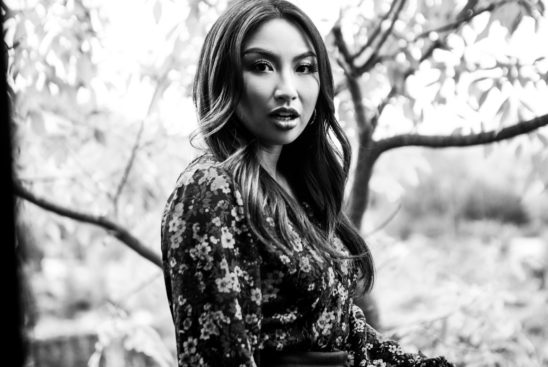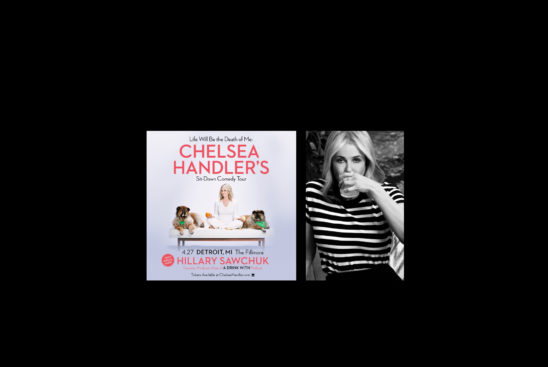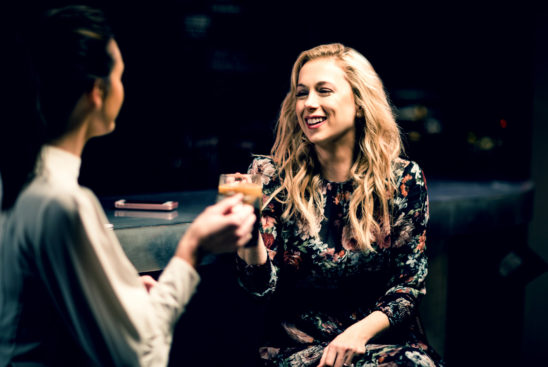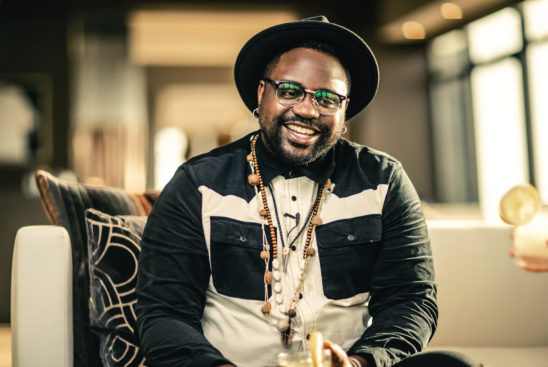Kristen Wiig stars in your film as a woman who wins the lottery and uses her winnings to buy her own talk show like “The Oprah Winfrey Show.” Do you know if Oprah has seen it?
I have no idea! People ask me that. I don’t know– probably not because she’s so busy, but I would love to hear what she thinks of it.
Well, let’s toast to “Welcome to Me” with some Sofia Rosé! As a director, what’s it like reading the reviews?
I don’t really read the reviews. I read just a couple, and then I remember that I shouldn’t read them. You don’t want that in your head. That’s not why you do it. Critics are funny and they like certain things and don’t like other things. All in all we’ve been getting great reviews. The New York Times gave it “Critics’ Pick,” so then I was like, “Alright, I’m not going to worry about the rest of them.”
Is it challenging juggling your creative life and family life?
People don’t really ask me about my family that much, but that may be the hardest part of everything.
Your mom, Joyce Piven, started the Piven Theatre Workshop in the 70s and became a teacher to a generation of actors. Do you know if she had the same challenges when you and Jeremy [Piven] were young?
She had a different balance in her life. It was she and my dad and they both had careers. It’s not like that was different. My husband and I both have careers as well, but I think it was a little less usual then. She was determined to have a life in the theater. She also felt that in order to raise a family, her husband’s career kind of had to take priority over hers. She still managed to have her own career; for me it’s just a different balance. I’ve been really lucky because my husband [director and screenwriter Adam McKay] is able to support our family. I’ve had the luxury to raise my kids and have a creative life and that’s amazing. Juggling is hard time-wise and it’s hard emotionally too, but it’s also great in its own way.
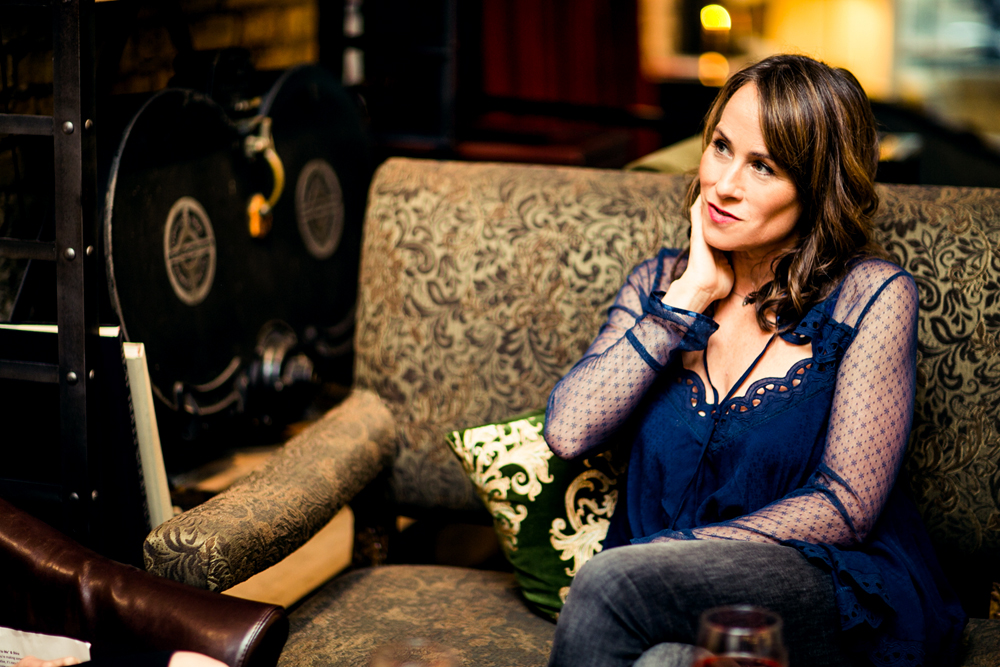
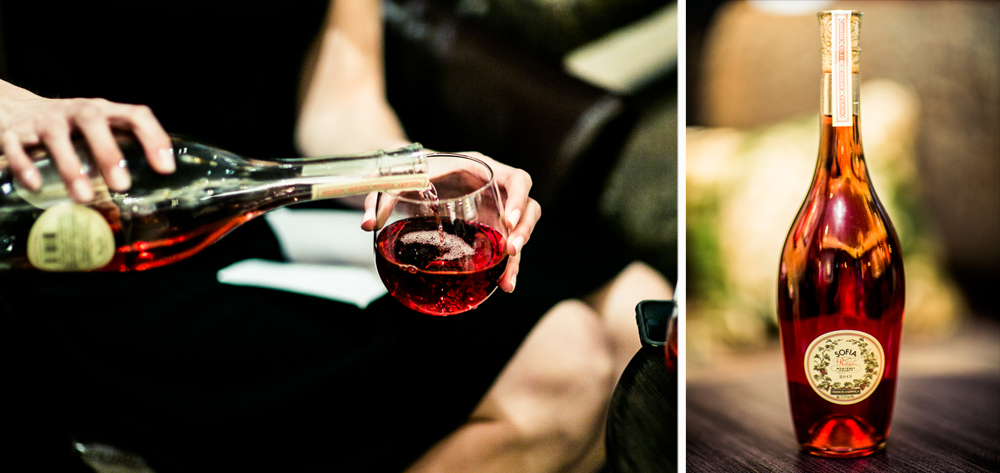

Did your two daughters come on set?
Filming is easy in a way because it was like, “Now I’m shooting and we have to make sure they’re taken care of,” and luckily my husband was around and we have a nanny. We had to make sure their schedule was locked down and assume I wasn’t available. They came on set a couple of times and Pearl, my youngest daughter [from “The Landlord” on Funny or Die], was in one scene. My other daughter [Lili Rose] was supposed to be in one scene, but it was the same day she started school, so we thought, “Let’s not do that, let’s have her go to school.” And she wanted to go to school. She actually sings a song that’s in the movie. She’s the vocalist on the song. It’s a Mountain Goat song and she does a cover of it. I play guitar and she sings it. It’s over Alice’s [Kristin Wiig’s character] naked walk through the casino.
Was that Kristen Wiig’s first nude scene?
Yeah. And she had a hard time with it.
Was that something that was originally in the script?
It was in the script, and Kristen read it. When she was saying yes to the script she knew she was saying yes to that scene. I think it was touch-and-go up until the last minute because there was part of her that was really nervous. I think she was nervous that people would sneak in and take a video and post it all over the web, and I think she was just terrified. She’s sort of beloved. I’m speculating, but she really has a lovely career and didn’t have to do this. I think it was scary to do, and what if suddenly she’s naked all over the Internet? Somehow it hasn’t happened at all. I haven’t gotten tons of questions about it after the opening. Before it opened people had lots of questions, but after it opened people haven’t asked about it.
The nude scene was so authentic that it didn’t come across as anything but this deep, emotional realness.
That’s good. That’s really good to hear, because it’s not a sex scene and it’s kind of painful to watch. It’s not like, “Yeaaah, Kristin Wiig!”
You’ve said, “The beginning of creativity is when you stand in the face of chaos and say, ‘I don’t know what the answer is,’ and go on.” How did you embrace uncertainty in making this movie?
I just think movie-making in general has a lot of uncertainty. I think of uncertainty as being a big part of the creative process. You make certain decisions based on how you feel out a script, how you feel the ebb and flow of the story and what feels funny. You have instincts about how to make it come to life, but then the reality is you’re working with live actors and you’re working with a camera person where the camera isn’t in your hands. My feeling is that you have to elicit the best out of everyone because movies are so collaborative, and there’s a lot of uncertainty in that. But that’s kind of the joy of it. I mean sometimes there’s this idea that directors know every move that they’re going to make in advance. I don’t trust those directors because I think some of the magic is in the surprise of it. We do a lot of improvising when we’re shooting. So we shoot the script and we make sure we shoot the script as written and get really good takes, but then we have the luxury – even with a short 25 day shoot…
Wait. You filmed the whole movie in 25 days?
The whole movie. It went over a couple of days so I think it probably equaled 26 days, but no more than that. We didn’t do reshoots and we got a chance to improvise within that [time] and that was really great. I’m throwing lines out, the writer’s writing things on the fly, handing it to the actors, the actors are improvising and that’s uncertain and fun. Some of the funniest moments are improvised moments, and to me that’s where the uncertainty is. There was a lot of non-creative uncertainty, like we didn’t have a full cast. Pre-production I was almost going to go to the doctor because my stomach was in knots the whole time. Once we got to shooting I was really in my element, but in pre-production there are so many unknowns and there’s so much real uncertainty. I’ve heard of movies where actors are on a location waiting and the money doesn’t come through. You’ve heard of that. So that’s why I think pre-production was the hardest.
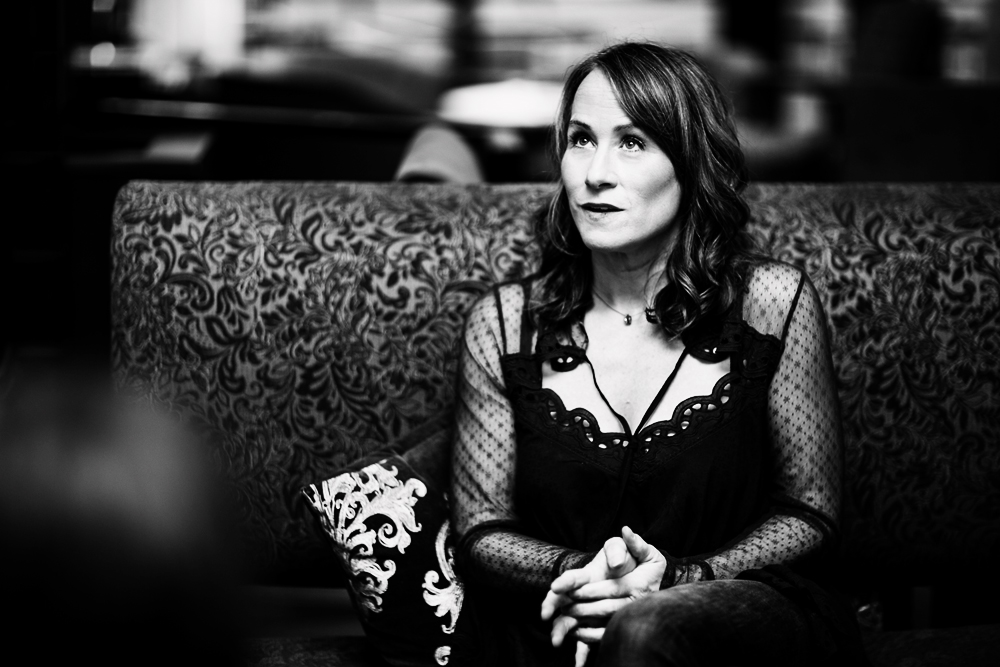
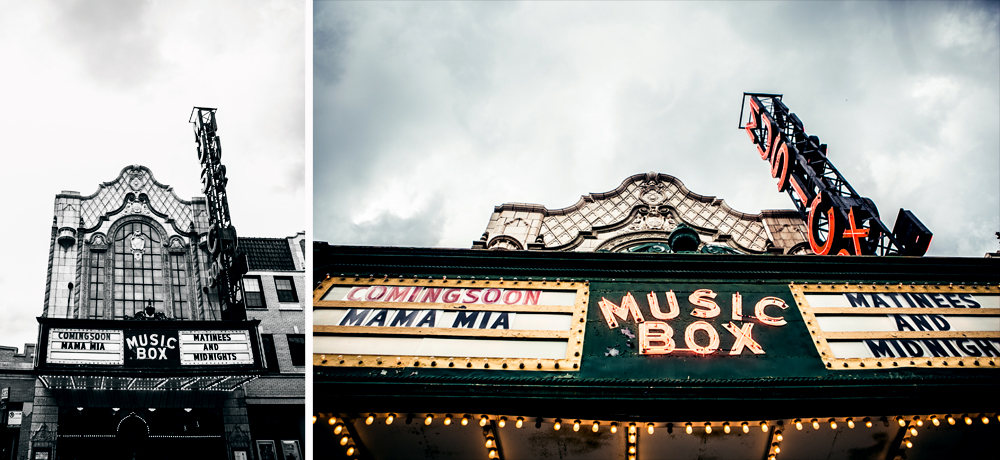
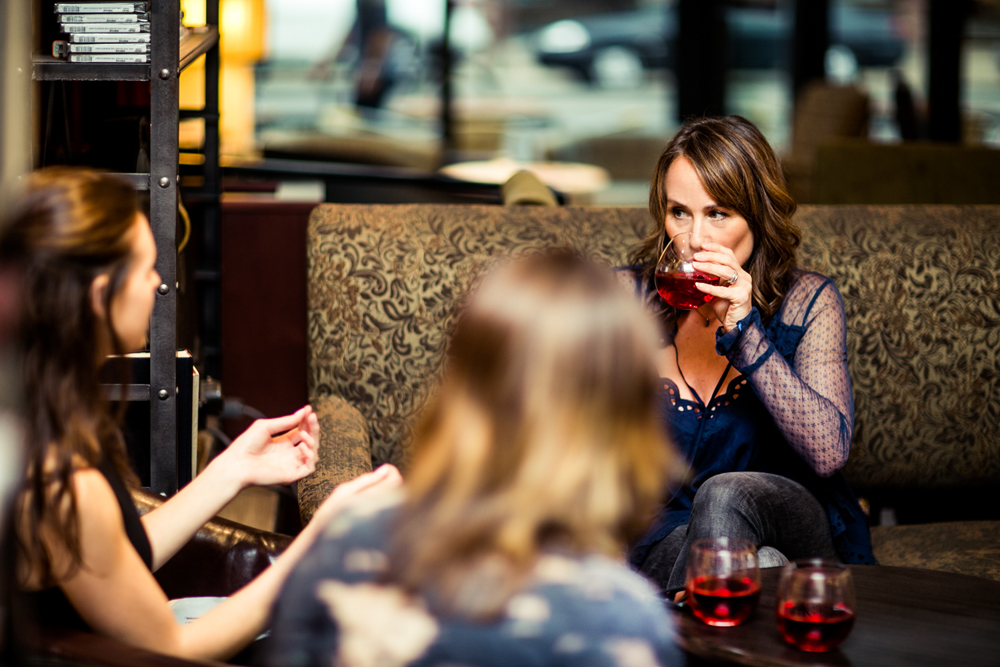
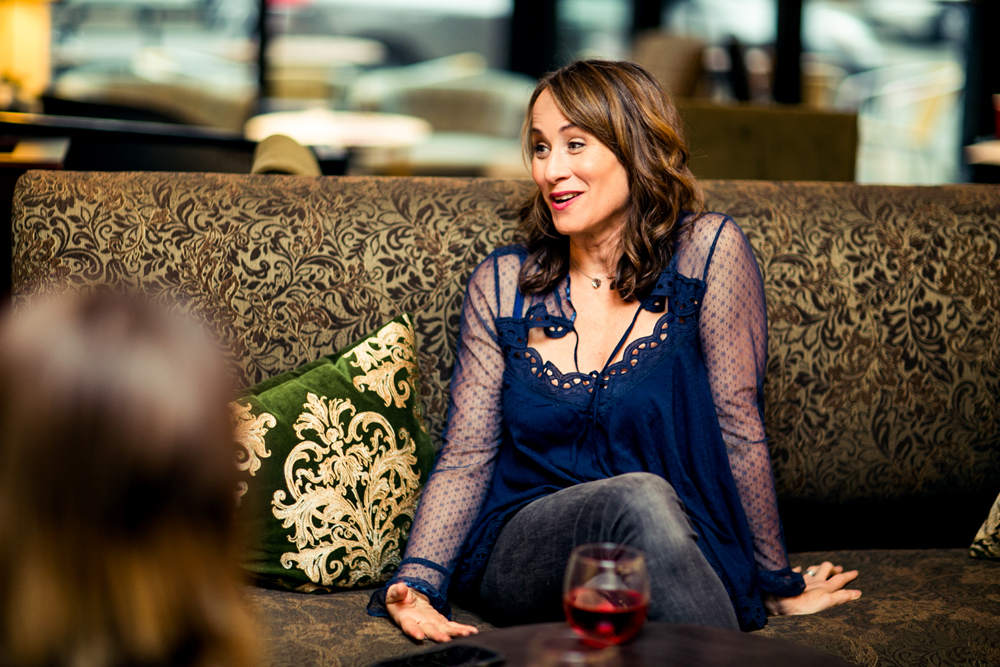
Kristen Wiig’s character is so dynamic and quirky, almost crazy. Was each take really different from the next with her?
That’s interesting. Is one take different than the other? She is just a very instinctive actress and she doesn’t like to over-prepare for things. Different actors work in different ways. I did a lot of stage acting in Chicago, and when I was acting I needed to know my lines cold. I needed to be able to say my lines in my sleep and then I felt like I could be free. She’s a total improviser. She barely learns her lines so that she has this freshness. And she knows her own process so she just needs to feel like she’s really in the moment all the time.
So Kristen likes not knowing where her performance is going to go?
As a performer she’s sort of comfortable in that place of spontaneity. She wants to keep herself spontaneous and on her toes, which is great. In the beginning we had really similar takes on the script. I felt like this was not a broad comedy at all. This had to be played absolutely for truth, and we had to find the humanity in these people. We had to believe in this life – that this is her real life. She didn’t even think this was a comedy. I like to sort of take it out of the genre question. You could call it a tragic comedy maybe. She kind of thought of it as a drama to some extent. I was sort of afraid that when she was going to be on set that she wouldn’t allow herself to show that crazy side of her which is part of the character. But she did, and she kind of can’t help it. She had really strong feelings about it and she cares about every role she does and then as a producer herself she wants certain things. So she gave notes at a certain point and we were able to edit it to a point where we wanted to show people. She was really involved in the process. I remember after we had finished our first real version of the film she texted me and said, “I can’t stop watching this; I love it.” And I thought, “This is good,” because it was hard getting to that point. We had a lot of conflicting notes sometimes from her and from [my husband, producer] Adam McKay.
What do you think are the skills that make a successful director?
I think you have to really love it. I think a lot of people think of directors as being– this goes back to the uncertainty principle – the mapper-outter and that you have answers to every question and you make logical decisions about things. I think directors are very emotional. I think that a piece succeeds because you have an emotional connection with it, a personal connection with it. So I feel like it depends on the piece, but it’s important for directors to have a personal connection with the material. I remember one time I directed a play that I didn’t have that [connection] with and it didn’t go well. I mean, it was okay. It was the one job that I may have done for the money. It wasn’t that I didn’t like the material, but I didn’t have a strong connection with it and it didn’t hold my attention. I feel like you have to be obsessed with the piece you’re doing and that’s why I’m really choosy about scripts, because unless I feel like I can spend a couple of years of my life still interested in the material, I probably shouldn’t do it. I think a director also has to be really collaborative and be able to let go of their own ego because sometimes directors want to tell everyone how to do their job. I feel like my job is to get people to also feel passionate and give their best. My husband likes to say when you’re making a film it’s like a mini city. Everyone sort of has their job and everyone’s really good at their job. You don’t know how to do everyone’s job, but you know how to work with them and ideally get the best out of them.
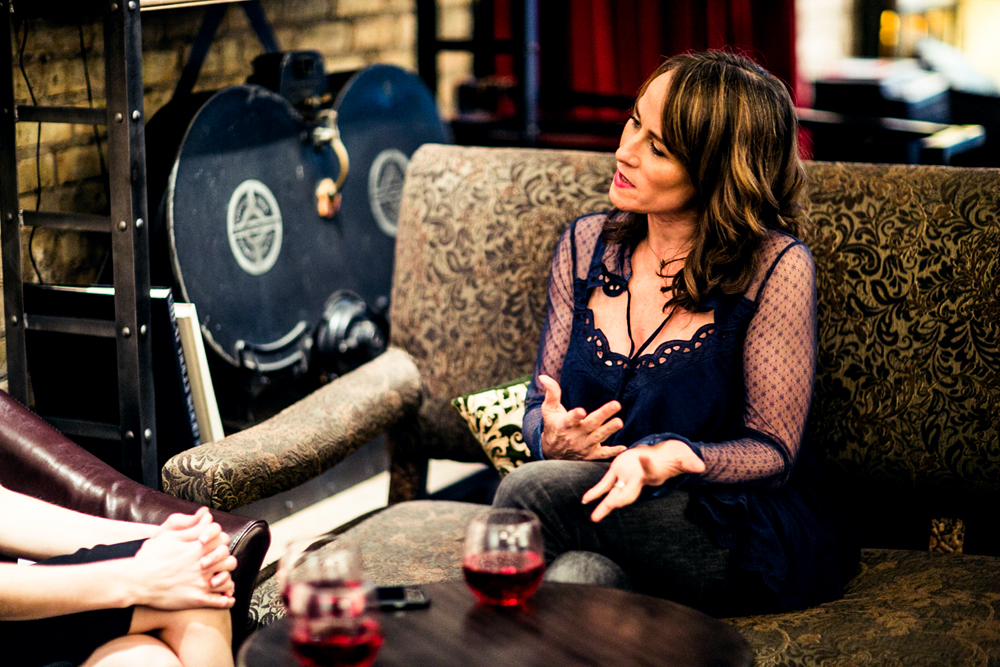

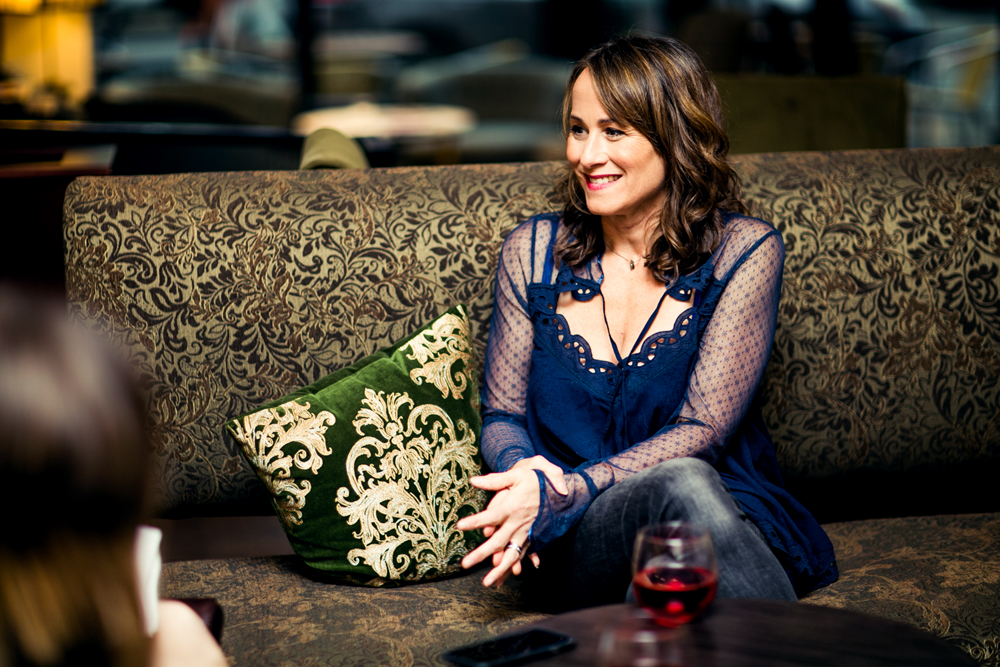
Would you say the film is sort of a commentary on the reality TV phenomenon?
I never like to give a movie away, but the thing that is so important about this movie, or what I love about the subject matter is that we have so much selfie, reality TV in our world every day. I think we’re all struggling with it. I think there’s a way in which we are all – as the writer Elliot Lawrence calls it – ‘life casting,’ which is how we’re putting our lives [out there] as if it is some kind of show. I think it’s so prevalent that it’s hard to parody it and make art about it. That’s what I love about this movie. It creates a fictional world where you’re able to look at it from a distance and go, “Oh my God. That’s crazy. That’s what we’re doing.” Alice is crazy. She’s doing it, but we’re all doing it. It’s like mental illness meets cultural illness.
As someone born out of the theater world, what’s your take on the evolution of entertainment into reality TV?
When I met my husband he was writing for “Saturday Night Live.” His business was a very different world than I came from doing theater in Chicago. His business was pop culture and he had to know pop culture. He had to ingest pop culture all the time to be a writer on “SNL.” Over the years, because of him, I watch a lot of reality TV. Not so much now – when he’s out of town I actually don’t watch it. When I’m with him we do watch some reality TV and a lot of it is just fascinating.
What shows do you think are fascinating?
“Naked and Afraid.” Do you know it? It’s crazy and it seems so dangerous. People really get deadly jungle illnesses on that show. I think, “Why are they making this show?” But you want to see people who are dealing with extremes of life. I watched “Married at First Sight” with my 10-year-old. I kind of regret it. It’s a little like watching a train wreck, but still fascinating. Who would, first of all, do that and, second of all, have it be televised? I was so private with my romantic relationships to begin with, but then to televise that?
With so many people in your family in the industry, what happens when you get together? Are you always talking shop?
I think that’s sort of boring stuff. It’s pretty normal. I grew up talking shop with my parents, but my brother, Jeremy, and I also had regular childhoods too. We just did kid stuff. We were students at my parents’ theater at a really young age. At home my husband, Adam McKay, is really hilarious. He’s funny in his sleep, but he also has a really serious side. When he’s away filming we miss having him at dinner because we’re not laughing quite as much. Sometimes my brother will come over for dinner and they will make each other laugh and that’s nice.
Are Jeremy and Adam close?
They definitely get along really well. We all love music. We talk about music a lot. We talk about the movies we’ve seen and tease the kids a lot. Tickle the kids.
Is working with family ever hard?
I think it’s weirder for my husband. He grew up in a family that was not performers, so he was always sort of weary. He produced a movie that my brother Jeremy was in called “The Good,” which is a really funny movie that kind of came out at a weird time. Paramount Vantage was folding so it didn’t get its proper due in terms of promotion– really funny movie. Anyway, he produced that movie. Before that he was nervous to work with Jeremy I think. He was like, “It’s family. What if it doesn’t go well?” And for me I was just so used to it.
You grew up in Chicago, but are now based in L.A. What’s your city of choice?
I would say New York. [Laughs] I was born in New York and a part of me feels really at home there. But Chicago – I love Chicago – I love coming back here and I don’t love L.A. culturally. I just like the ease of the weather and we have great friends out there, but I don’t like the vibe in L.A. exactly.
If you could have a drink with anyone, who would it be?
John Cassavetes. I love his films. He got to make these strange, very alive looking movies that feel very improvisational, but I don’t think they actually are. He’s been dead for a while, but I’d love to hear about his process.
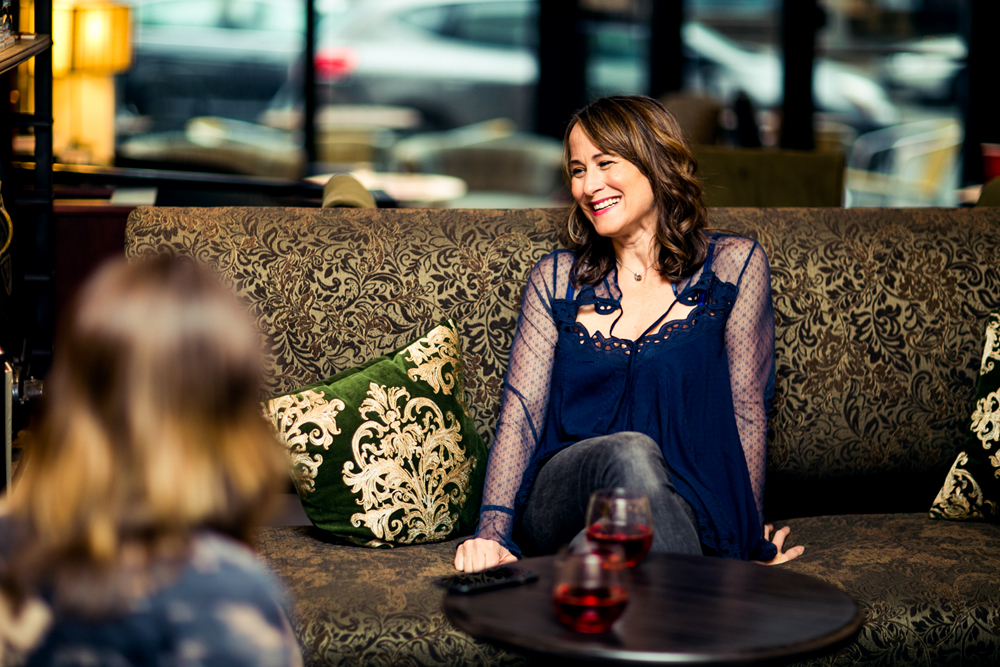
KIRSTEN MICCOLI PHOTOGRAPHY / A DRINK WITH at Music Box Theatre
Did you enjoy this feature? Subscribe to our newsletter and never miss a drink, we promise we’ll never spam you!

